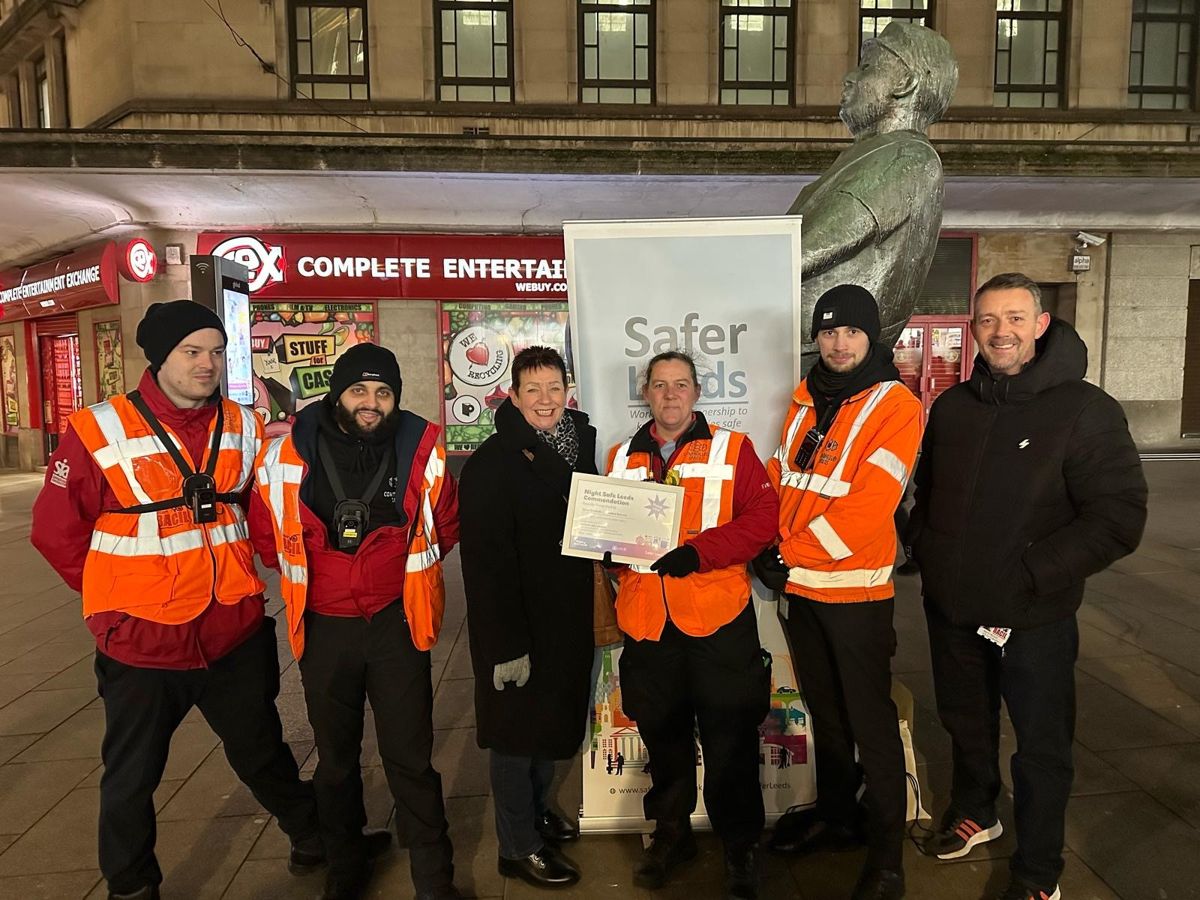In Leeds, street marshals play a vital role in keeping the city safe, especially on lively weekend nights when they assist vulnerable individuals and defuse tense situations. Recently commended for their life-saving actions during a distress call, these dedicated marshals, equipped with specialized training and support from the UK Shared Prosperity Fund, exemplify the commitment to public safety within the vibrant heart of West Yorkshire.
What is the role of street marshals in Leeds’s public safety?
Street marshals in Leeds play a critical role in public safety, especially during weekend nights. Their responsibilities include looking out for vulnerable individuals, offering assistance, and swiftly defusing volatile situations. They are recognized for their life-saving interventions and contribute substantially to ensuring that residents and visitors feel safe in the city centre.
Introduction to Safer Leeds Initiative
Leeds, the vibrant heart of West Yorkshire, is known for its bustling city centre, especially during the weekend nights. Ensuring the safety of those who live, work, and revel in this dynamic environment, Safer Leeds has taken the initiative to a new level. Trained security staff, widely recognized as street marshals, are now an integral part of the city’s nightlife. These individuals are not just ordinary personnel; they are heroes who walk amongst us, providing support and assistance most notably on Friday and Saturday nights, from 3pm to 3am.
The street marshals received special commendation earlier this year, following a life-saving intervention. During a shift in January, they responded to a call about a distressed woman. Their timely engagement and supportive action until the arrival of police and emergency services exemplified the crucial role they play in urban safety. This incident is one in a series of events that showcase the dedication and expertise of the street marshals in managing nighttime safety in Leeds.
The Role of Street Marshals in Urban Safety
On the frontline of Leeds’s public safety, the street marshals don high-visibility orange jackets, becoming beacons of reassurance for the public. Their mission is multifaceted; they keep an eye out for vulnerable individuals, provide help, and act swiftly to defuse potentially volatile situations. It is no surprise that on the night of 14 February, during a Night Safe Leeds partnership briefing, the street marshals were commended for their outstanding contributions to public safety.
Councillor Mary Harland, serving as the executive member for communities, customer service, and community safety at Leeds City Council, lauded the initiative. “We launched Night Safe Leeds to spread the word on measures to stay safe in the city centre. It’s crucial to ensure that whether day or night, everyone in Leeds feels and indeed is safe,” she remarked. The commendation, she noted, is a testament to the vital role the street marshals play in supporting residents and visitors alike.
Night Safe Leeds is a collaborative program, uniting various on-street support services to create a network of safety for those in the city centre. The marshals are operationally connected through the Business Against Crime in Leeds (BACIL) radio system, which also ties into the LeedsWatch CCTV control room, law enforcement, and other support services. Simon Hodgson, Leeds City Council’s head of community safety, said, “Positive feedback from the hospitality and retail sector confirms the street marshals’ importance in supporting the safety of individuals, making sure people get home without harm.”
Training and Funding of Street Marshals
Not just anyone can assume the role of a street marshal. These individuals are employed by Controlled Space, a Yorkshire-based security service, and come equipped with full SIA licensing. Their training is rigorous, encompassing de-escalation techniques, safeguarding, and understanding the vulnerabilities associated with alcohol and drug use, particularly concerning the safety of women.
The commendable work of the street marshals is made possible through funding provided by the UK Shared Prosperity Fund (UKSPF). The service is delivered through a partnership that includes Leeds City Council, BACIL, and the West Yorkshire Combined Authority, which administers the UKSPF funds locally. This financial support underscores the commitment to public safety and the proactive approach Leeds is taking to protect its citizens and guests.
For more information on the support available through Night Safe Leeds, interested parties can visit the official website here.
Impact and Recognition
The unsung heroes of Leeds’s nightlife, the street marshals, have once again proven their worth. Their actions not only preserve the well-being of individuals but also maintain the city’s reputation as a safe and enjoyable place for nightlife. The recognition these marshals have received is not merely for a single act of heroism but for their persistent efforts in ensuring public safety.
In conclusion, the street marshals of Leeds have become pivotal figures in the cityscape, working tirelessly to guarantee that Leeds remains a city where safety is held in the highest regard. Through their adept handling of emergency situations and their dedication to public service, these marshals ensure that Leeds’s streets are secure for all who traverse them, whether by day or by night.
- Street marshals in Leeds are essential for public safety, particularly during weekend nights, providing support and assistance for vulnerable individuals.
- Recently, they received commendation for their life-saving actions during a distress call involving a distressed woman.
- The marshals are part of the Night Safe Leeds program, which connects various on-street support services to enhance safety in the city centre.
- They are trained professionals, equipped with SIA licensing and skills in de-escalation and safeguarding, especially regarding alcohol and drug use.
- Their operations are funded by the UK Shared Prosperity Fund, highlighting a community commitment to ensuring a safe environment for residents and visitors.
